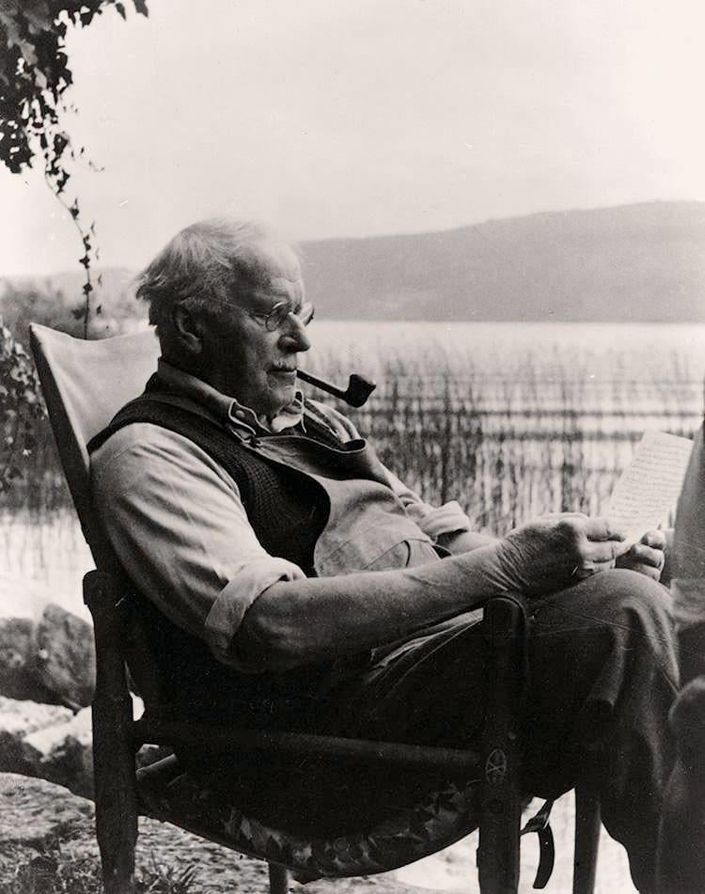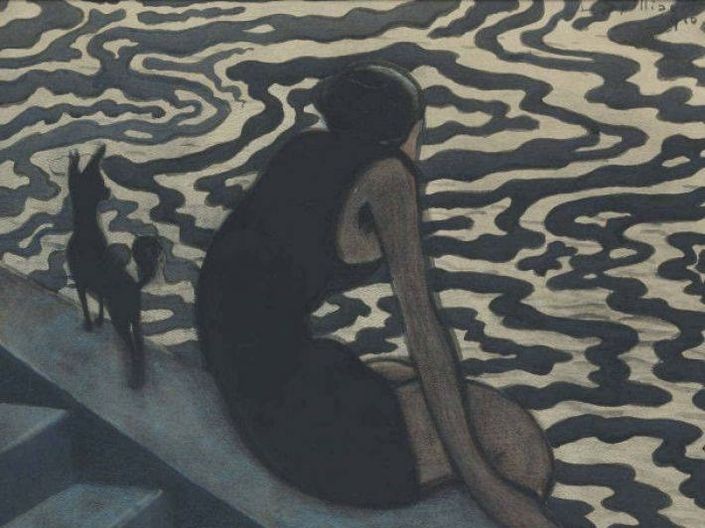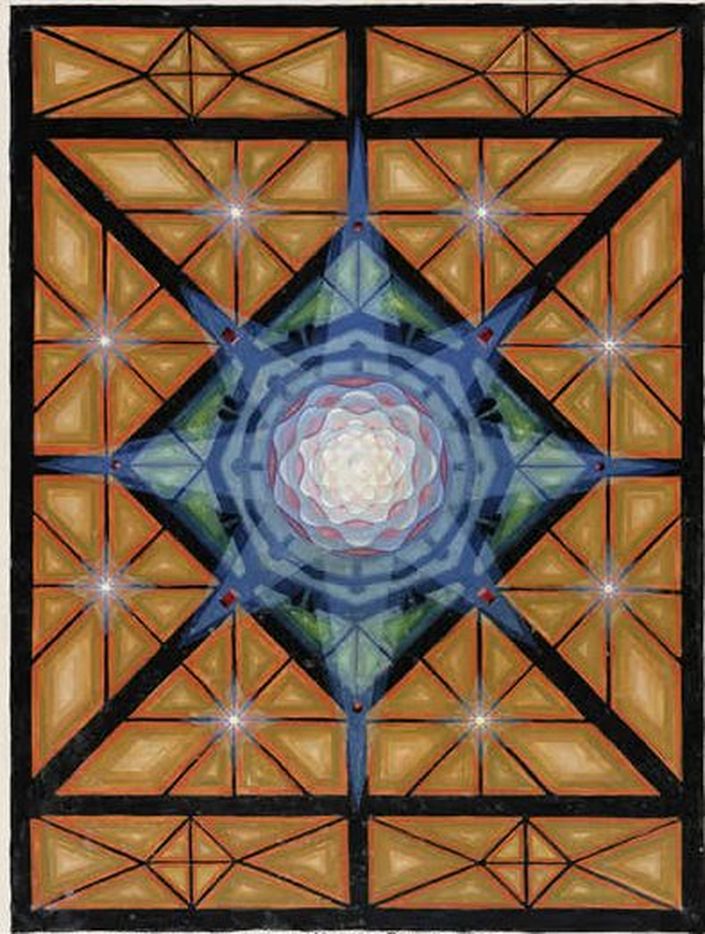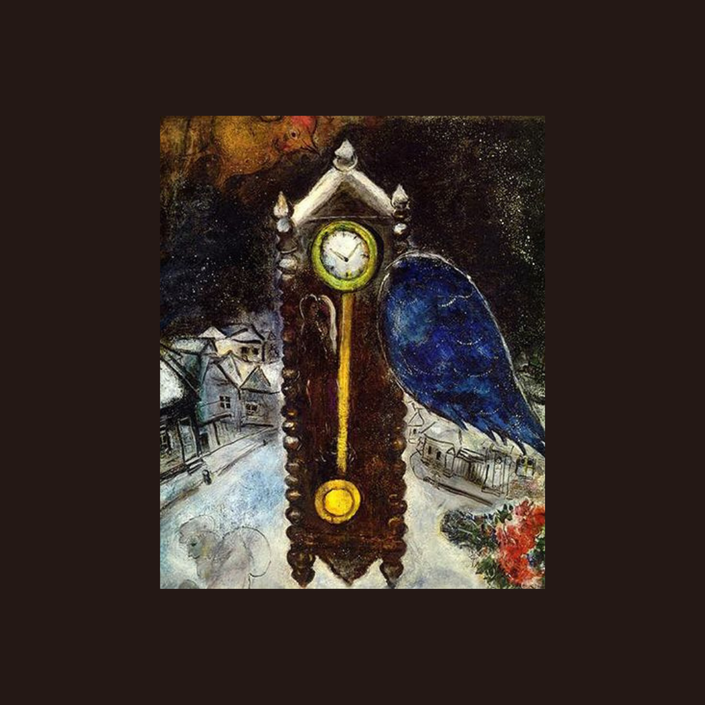
Jung on Complexes
"Possession, though old-fashioned, has by no means become obsolete; only the name has changed. Formerly they spoke of ‘evil spirits’, now we call them ‘neuroses’ or ‘unconscious complexes.’ Here as everywhere the name makes no difference. The fact remains that a small unconscious cause is enough to wreck a man’s fate, to shatter a family and to continue working down the generations...(Jung, CW 18)"
About This Course
The four terms in the title of this course are intimately connected in Jung's psychological model. While working definitions for each term will be provided as the lecture progresses, the overarching intent will be to demonstrate how all four concepts dynamically interact with one another in everyday life.
Jung initially planned to name his model Complex Psychology, considering early trauma to be at the center of all complexes. Later, however, he would argue that the complex had an archetypal core that connected the individual to the collective unconscious. The collective unconscious, he held, originated beyond the personal unconscious where complexes seemed to play out. In realizing that the complexes were seeded in the collective unconscious, Jung was able to account for their incredible inner psychic force.
He would also soon realize that in order to work with the intense psychic energy brought to bear from the archetypal depths of the psyche, a turn inward was required, along with a commitment to engaging with the material symbolically. Inherent in Jung’s approach here is his suggestion and acknowledgment of a symbol-making faculty of the psyche, native to each individual, which he referred to as "the transcendent function."
By fostering an active dialogue between one's conscious and unconscious life, symbols of transformation can emerge which create the difference between being trapped in a personal complex and moving toward a greater sense of freedom and wholeness.

Complex
A complex is a cluster of energy in the unconscious, charged by historic events, reinforced through repetition, embodying a fragment of our personality, and generating a programmed response and an implicit set of expectations.
C. G. Jung

Archetype
Archetypes were and still are psychic forces that demand to be taken seriously, and they have a strange way of making their effects known. Always, they were bringers of protection and salvation, and their violation has as its consequence the “perils of the soul” known to us from the psychology of archaic cultures. Moreover, they are the infallible causes of neurotic and even psychotic disorders, behaving exactly like neglected or maltreated physical organs or functional organic systems.
C.G. Jung, CW 9
Essay on "A Science of Mythology," para. 117

Symbol
The vision of the symbol is a significant indication as to the further course of life, the libido being allured towards a still distant aim…This is so that life may be kindled like a flame, moving steadily onward to the far goal. This is the specific life-promoting significance of the symbol…I am speaking of course of living symbols that rise from the creative unconscious of living man.
Jung CW 6, Psychological Types

Myth
Myths are original revelations of the preconscious psyche, involuntary statements about unconscious psychic happenings, and anything but allegories of physical processes. Such allegories would be an idle amusement for an unscientific intellect. Myths, on the contrary, have a vital meaning.
C. G. Jung
The Archetypes and the Collective Unconscious

Projection
The term itself means an unconscious, unperceived, and unintentional transfer of subjective psychic elements onto an outer object. Jung also speaks of a "hook" that in everyday life serves as the object upon which the subjective psychic contents are projected (CW 8, para. 99)...In the vast variety of our projections, we have represented a vivid and panoramic display of psychic energy moving from the subjective unconscious to the objective world. Projections thus are the most immediate testimony of the unconscious operating in the world, as well as potentially one of the most damaging and dangerous characteristics of the human personality.
A. Spoto, Jung's Typology in Perspective, p. 99

Moving Toward Wholeness
The central and centering concept in Jung’s psychology is individuation, to be distinguished from individualism, which emphasizes ego-identity over ego-Self relations. The individuation process is what brings an individual into contact with a deeper Truth. These encounters with the Self are often experienced as numinous, making clear to the ego that there is something greater or that greater forces are at play wanting something of the ego. This can at times feel disturbing, shocking, or even dangerous. When the ego opens up to the individuation process (the result of shadow-work), the Self seems otherwise to guide the ego in the direction of that greater Truth. Often that guidance takes the form of dreams, active imagination, symbols, and synchronicities.
jungtampa.org: Glossary of Terms
Course Curriculum
Angelo Spoto, Instructor
Angelo Spoto, M.A., LMHC is a licensed mental health counselor with a Master’s degree in Analytical Psychology. He is co-founder of the C.G. Jung Library of Tampa Bay and author of Jung’s Typology in Perspective (Chiron Publications).








